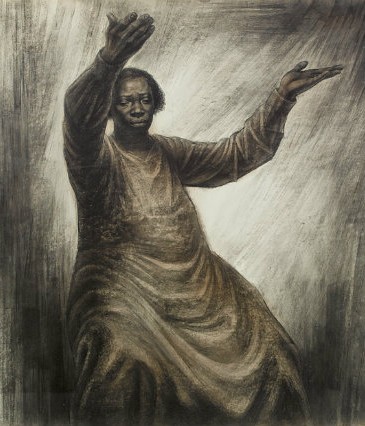Introduction
This old Negro spiritual, written after the Civil War by an unknown author, expresses both the dignity of ex-slaves after the end of bondage and the yearning for release from the miseries of their lot after emancipation. Like many other Freedom Songs, “Oh, Freedom,” joins together worldly longings for freedom here and now and otherworldly hopes for redemption in the presence of the Lord. Very popular during the 1950s and 1960s, it was sung at the 1963 March on Washington by Joan Baez (b. 1941). But it is most notably associated with another song leader, the incomparable Odetta (born Odetta Holmes; 1930–2008).
What kind of freedom does this song invoke? What does it mean to speak of freedom “over me”? What are the possible meanings of the refrain, “And before I’d be a slave,” etc.? What is the emotional effect of its steady repetition?
For a musical rendition, listen to Odetta sing the song.


 (5 votes, average: 4.40 out of 5)
(5 votes, average: 4.40 out of 5)
Post a Comment